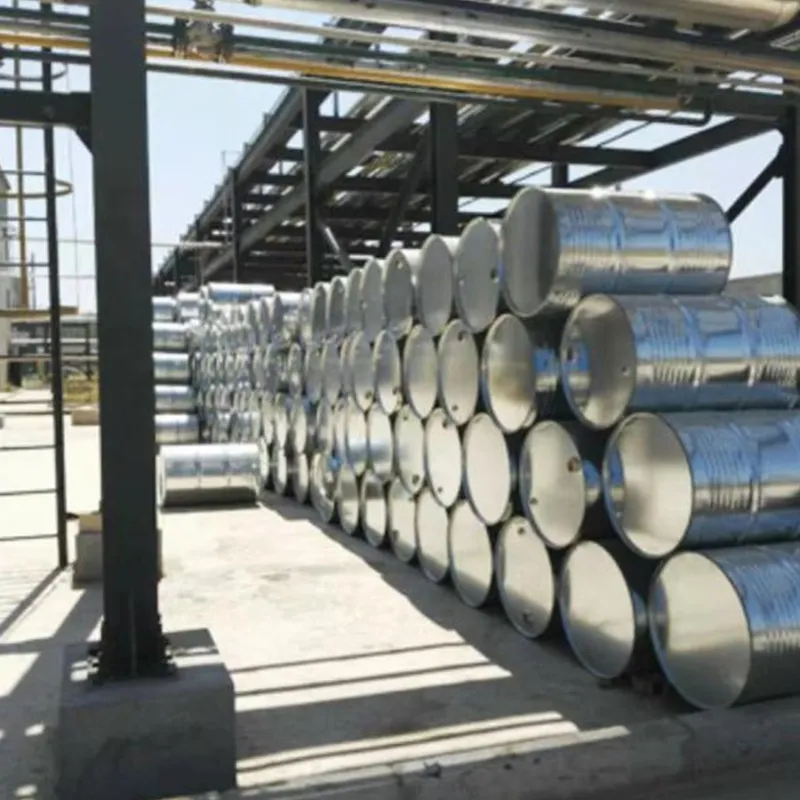
Understanding E472e Food Additive and Its Uses in Food Products
Understanding E472e A Food Additive
In the ever-evolving world of food production and consumption, food additives play a crucial role in enhancing the flavor, texture, and shelf life of various products. Among these additives is E472e, a compound that has garnered attention in the food industry, particularly among manufacturers and health-conscious consumers alike. This article delves into what E472e is, its uses, regulations, and any potential health concerns associated with it.
What is E472e?
E472e is a type of emulsifier derived from partial glycerides of fatty acids and is classified as a food additive in the E-numbers system used within the European Union. Specifically, E472e is known as Mono- and di-glycerides of fatty acids. This additive functions primarily as an emulsifier, helping to blend oils and fats with water, thereby creating a stable mixture in a variety of food products. Besides its emulsifying properties, E472e also acts as a stabilizer and thickening agent.
Uses of E472e
E472e is commonly found in a wide range of food items. It is used in baked goods, margarine, sauces, dressings, and ice creams. The presence of E472e in these products helps maintain a consistent texture and prevents the separation of ingredients, which is especially important in products that contain both oil and water.
In baking, for instance, E472e enhances dough stability and contributes to the softness and moisture retention of bread. In margarine, it helps achieve a smooth texture, while in dressings, it ensures an even distribution of flavors. Moreover, E472e is used in some dairy products, enhancing creaminess and mouthfeel.
e472e food additive

Regulatory Status
E472e, like many food additives, is subject to regulation by food safety authorities. In the European Union, it must comply with the standards set by the European Food Safety Authority (EFSA). According to EFSA, E472e is considered safe for consumption at the levels typically used in food products. Similar regulatory bodies around the world, such as the United States Food and Drug Administration (FDA), have also reviewed E472e, approving its use in certain food applications.
Health Considerations
While E472e is generally recognized as safe, some consumers are cautious about the consumption of food additives due to potential allergens or intolerances. As E472e is derived from fatty acids, individuals with specific allergies or dietary restrictions should always check ingredient labels carefully. The source of the fats used in producing E472e can vary; it may be derived from animal or plant sources, which can raise concerns for vegetarians, vegans, and those with dietary restrictions based on religious practices.
Furthermore, as with many food additives, the debate surrounding processed foods and their health implications continues to grow. Some health experts recommend minimizing the intake of processed foods where additives like E472e are prevalent, advocating for a diet based on whole, unprocessed foods.
Conclusion
E472e serves as a valuable tool in the food industry, enhancing the texture and stability of numerous products. As consumers become more aware of the ingredients in their food, understanding additives like E472e is crucial for making informed dietary choices. While it is considered safe by regulatory agencies, individuals should remain vigilant regarding their dietary preferences and any allergies. As we continue to explore the complex landscape of food additives, knowledge is key to navigating our choices for a balanced and healthy diet.
-
Industrial Chemicals: Quality & Purity for Every IndustryNewsAug.28,2025
-
Nitrile Rubber Honoring Strict Production StandardsNewsAug.22,2025
-
Aspartame Ingredients Honoring Food Safety ValuesNewsAug.22,2025
-
Fertilizer for Balanced Plant NutritionNewsAug.22,2025
-
Cyanide Gold Processing with High Purity AdditivesNewsAug.22,2025
-
Formic Acid in Textile Dyeing ApplicationsNewsAug.22,2025
-
Aluminum Hydroxide Gel in Skincare ProductsNewsAug.22,2025
Hebei Tenger Chemical Technology Co., Ltd. focuses on the chemical industry and is committed to the export service of chemical raw materials.
-

view more DiethanolisopropanolamineIn the ever-growing field of chemical solutions, diethanolisopropanolamine (DEIPA) stands out as a versatile and important compound. Due to its unique chemical structure and properties, DEIPA is of interest to various industries including construction, personal care, and agriculture. -

view more TriisopropanolamineTriisopropanolamine (TIPA) alkanol amine substance, is a kind of alcohol amine compound with amino and alcohol hydroxyl, and because of its molecules contains both amino and hydroxyl. -

view more Tetramethyl Thiuram DisulfideTetramethyl thiuram disulfide, also known as TMTD, is a white to light-yellow powder with a distinct sulfur-like odor. It is soluble in organic solvents such as benzene, acetone, and ethyl acetate, making it highly versatile for use in different formulations. TMTD is known for its excellent vulcanization acceleration properties, which makes it a key ingredient in the production of rubber products. Additionally, it acts as an effective fungicide and bactericide, making it valuable in agricultural applications. Its high purity and stability ensure consistent performance, making it a preferred choice for manufacturers across various industries.





